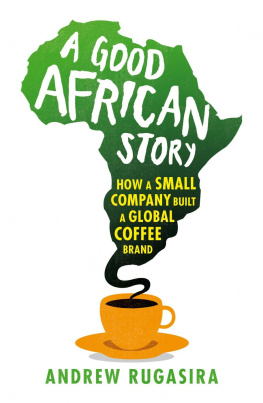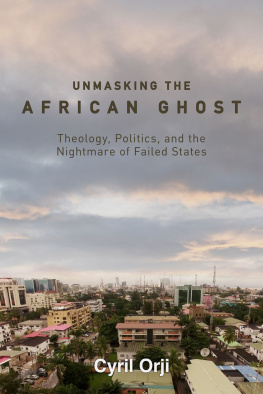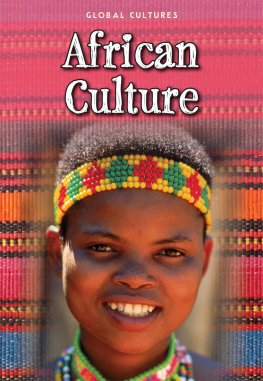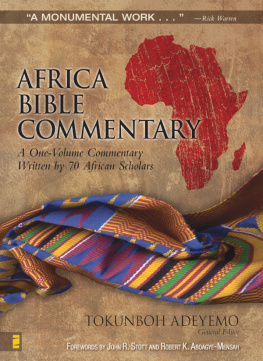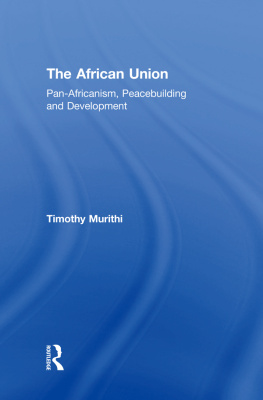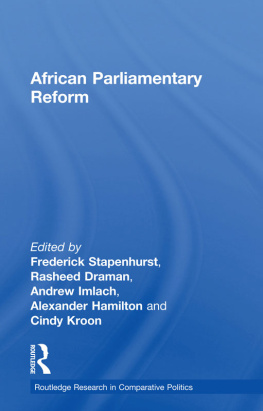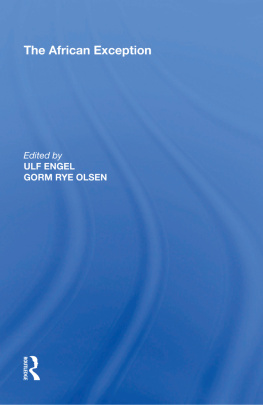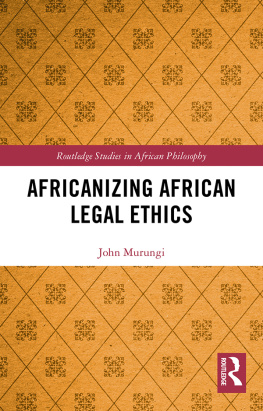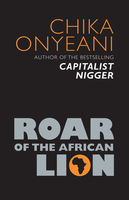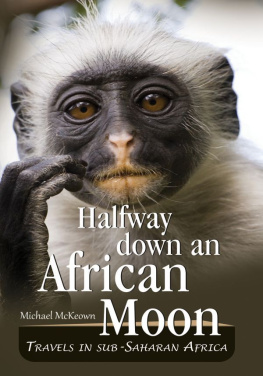Acknowledgements
A story of this nature owes a debt of gratitude to very many people, all of whom I cant mention here due to limited space. I trust, though, that when they read these pages, they will recognise themselves and their important contribution. I am eternally grateful for all their support and I owe it to them to give an account, to document this testimony in honour of their enriching this journey. But it is also to those whose expectations I have not met that I offer an account too; may this book show them that their efforts were not in vain.
My mother sowed much in me and has always encouraged me to write my story. She taught me the importance of staying the course, however difficult the obstacles. As a working mother raising us through the turbulent 1970s and early 80s in Uganda, she showed great courage and perseverance; from her I have drawn much inspiration. My father stirred my entrepreneurial instincts both while alive and in his absence. He was a role model of resilience and tenacity, the two things I have learned to value in my life. My sisters have always been a great source of encouragement, support and advice. To them I owe many thanks.
Words cannot capture the gratitude I have for my founding team and co-labourers. They stayed the course, endured many challenges and have contributed immeasurably to the Good African story. The transformation we have witnessed in the lives of many of our farmers is a result of their dedication and commitment.
The stories in the following pages would not exist without my three other supportive shareholders Hans Paulsen, Ndema Rukandema and Peter Chappell. They exhibited great loyalty and commitment in backing me in what was a highly risky business proposition. Over the years I have also greatly benefited from the counsel of the directors of my board, both past and present: Aimable Mpore, Jeff Sebuyira-Mukasa, Rachael Dumba, Charles Byaruhanga, Simon Rutega, Francis Gimara, Phillip Karugaba, David Barry, Kibby Kariithi and Musarait Kashmiri gave their time and advice freely and with much patience. Also, my UK distributor LDH (La Doria) specifically David Fine, Robert Wiltshire and Barry Fine were extraordinarily supportive and patient during our difficult entry into the UK market. They went beyond what commercial partners are expected to do and are the key reason we have a presence in the UK today. KEHE Distributors in the USA and critically Jerry Kehe, Darryl Humphrey, Brandon Barnholt, Ted Beilman, Mark Kroencke and Sheri Yount took a giant leap of faith to back our US market entry; we are in that market largely thanks to them. The farmers in Kasese always kept the faith, were generous with their time and commitment, and with pride and dignity proved that they could transform their livelihoods through hard work and self-motivation. This is what encourages us to show up at Good African Coffee each working day. My pastor Michael Kyazze and my church community were very supportive and a strong pillar for my faith on this journey.
Professor John Sender encouraged me to write this book during one of his research visits to Uganda, as did my longtime friend from our days at the University of London, Anthony Mosawi. I am thankful to Stephen Barasa, Robert Kibuuka, Joseph Esule, Andrew Lumonya, Tim Adams, David Anderson, Andrew Mwenda, Daniel Bergner and Alex Elliot for making valuable suggestions about my early thoughts surrounding the writing of this book. My agent, Felicity Bryan, brought the book to life through her great enthusiasm, energy and the networks that she generously brought to the project. I am grateful to Professor David Anderson at Oxford University for introducing me to Alex Duncan, who became a good friend of mine during my time at Oxford. Alex then suggested I speak to Felicity about the book and over a lovely dinner at their home the connection was made.
Kay Peddle, my editor, gave me the support and encouragement that first-time authors can only wish for. Her skill, thoughtfulness and wisdom helped me weave a set of stories I had verbalised for years into a narrative worth publishing. I am also grateful for all the editorial support Gemma Wain gave me as she shepherded the final manuscript through to publication. Needless to say, I take responsibility for the shortcomings.
But it is to my wife Jackie, and my children Cezar, Andrea, Karabo, Jonathan and Isaiah, that I reserve my deepest gratitude. My children never fail to energise me with their humour, and are always generous with their patience when I fall short or get tied up in my work and am away from home for long periods. To Jackie my wife, friend and ally I dedicate this book. Her love, friendship and encouragement have been strong pillars on which much of this story is built. I have walked this journey with her; and this book is as much about her as it is about me.
Writing a book of this nature poses some real challenges in terms of maintaining accuracy, and avoiding the temptation to embellish the past, putting events in a better light. I have tried to address these concerns through detailed interviews with most of the people involved with this story: my team, our farmers, commercial partners, friends and family. I have also referred to contemporaneous notes I kept along the way. I have endeavoured to remain true to all the characters documented here and in most cases I have written their names. But where I feel that the sensitivity of their work or their preference for anonymity is justified, I have decided to protect their identities. Given the length of the period covered and the breadth of the subjects involved, I have had to compress some of the details both for clarity and flow.
About the Book
Since it was founded in 2003, Good African Coffee has helped thousands of farmers earn a decent living, send their children to school and escape a spiral of debt and dependence. Africa has received over $1 trillion in aid over the last fifty years and yet despite these huge inflows, the continent remains mired in poverty, disease and systemic corruption. In A Good African Story, Andrew Rugasira argues that trade has achieved what years of aid failed to deliver, and has provided a tantalising glimpse of what Africa could be.
As he recounts the very personal story of his company and the challenges that he has faced and overcome as an African entrepreneur, Rugasira discusses the barriers that currently prevent fair and equal trade between Africa and the rest of the world. He sets out the arguments for building a sustainable trade framework and reducing dependency on handouts. And he builds up a manifesto for a revolution in the way that Africa is perceived.
This is a book about Africa taking its destiny in its own hands, and dictating the terms of its future.
About the Author
ANDREW RUGASIRA grew up in Uganda and went to the University of London for his undergraduate degree in Law and Economics. He later completed a masters degree in African Studies at the University of Oxford. In 2003, he founded Good African Coffee, the first African-owned coffee brand to be stocked in UK supermarkets and US retailers. He regularly speaks at leadership and business conferences, and is passionate about initiatives that lead to community transformation. In 2007, he was nominated as a Young Global Leader by the World Economic Forum. He has won several awards, including the Legatum Pioneers of Prosperity award, and in 2010 was nominated for a Financial Times/ArcelorMittal Boldness in Business award. Andrew lives in Kampala with his wife Jacqueline and their children.
www.goodafrican.com
@goodafrican
Selected Bibliography
Abbink, Jon and Ineke van Kessel (eds), Vanguard or Vandals: Youth, Politics and Conflict in Africa (Leiden: Brill, 2005)

